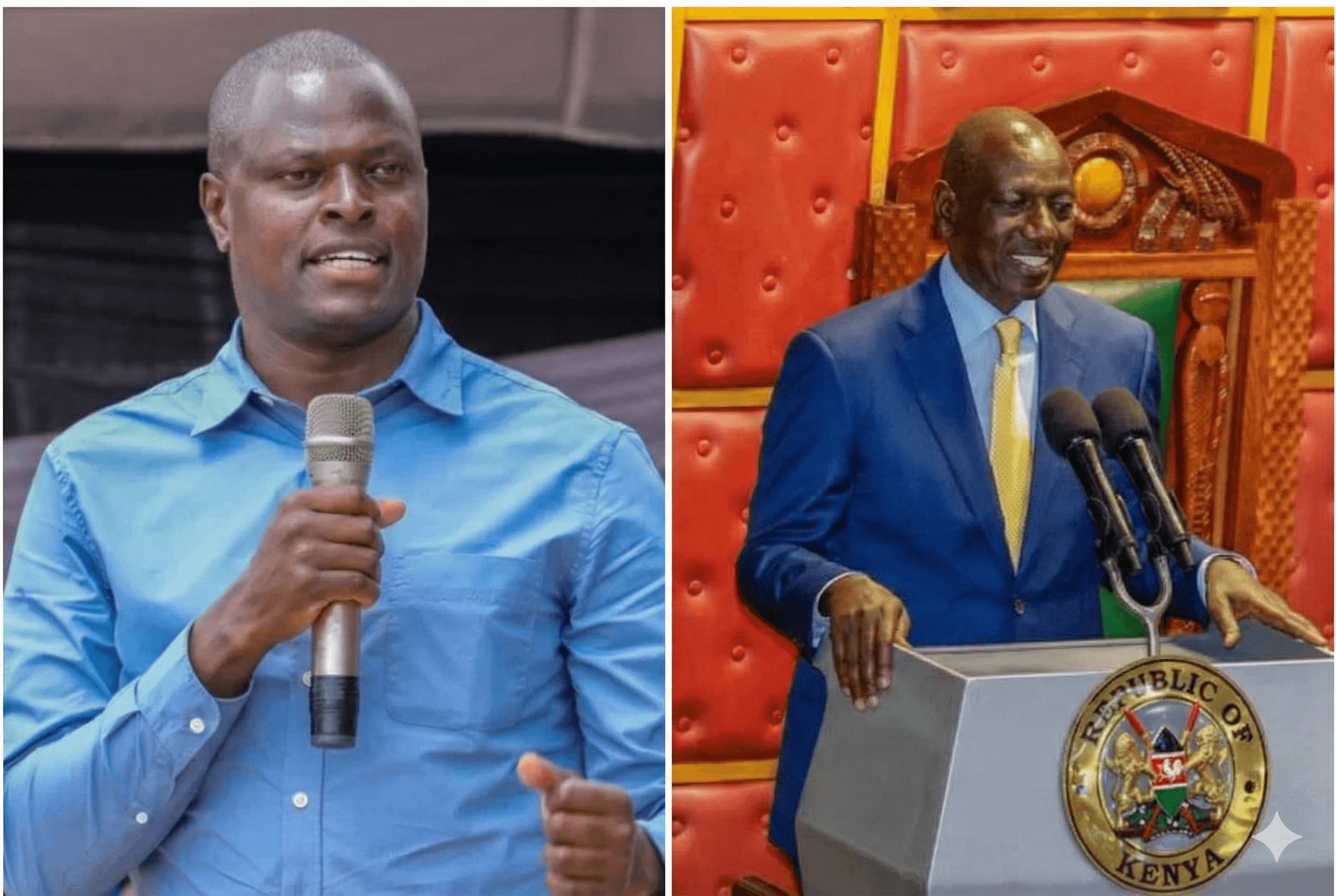We're loading the full news article for you. This includes the article content, images, author information, and related articles.
Kiharu MP Ndindi Nyoro, a key government ally, has publicly questioned economic figures presented by President William Ruto, citing discrepancies in data on public debt, taxation, and overall growth, signalling potential friction within the ruling coalition.

NAIROBI, Kenya – In a significant political development, Kiharu Member of Parliament and former Chair of the powerful National Assembly Budget and Appropriations Committee, Ndindi Nyoro, has publicly contested the optimistic economic narrative presented by President William Ruto during his State of the Nation Address last week. Speaking on Tuesday, November 25, 2025, Nyoro asserted that several key statistics cited by the Head of State do not align with official data from regulatory bodies, urging for a more candid conversation about Kenya's fiscal health.
The critique from a high-profile member of the ruling coalition has sent ripples through Kenya’s political landscape, suggesting a growing divergence between the executive's public pronouncements and the granular, often sobering, analysis of legislative bodies tasked with fiscal oversight.
In his address to the joint session of Parliament on Thursday, November 20, 2025, President Ruto painted a picture of a resilient and recovering economy. He highlighted that his administration’s “bold and sometimes difficult decisions,” such as ending subsidies and tightening revenue collection, had successfully stabilized the nation's finances. Key achievements touted included taming inflation, which he noted had fallen from a high of 9.6% in 2022 to 4.6% by October 2025, and a significant boost in agricultural output. The President also projected a GDP growth rate of above 5% for 2025, supported by what he described as renewed investor confidence and a stable macroeconomic environment.
However, Nyoro, leveraging his deep experience with the national budget, presented a starkly different analysis. His primary contention revolves around the state of public debt, which he warned is approaching unsustainable levels. According to a statement from Nyoro's office, data from the Central Bank of Kenya (CBK) and the National Treasury indicates that Kenya’s total public debt has surpassed the KSh 11 trillion mark as of late 2025. Nyoro cautioned that the country is borrowing approximately KSh 100 billion every month, a rate he described as “overheating the economy.”
“While we celebrate repaying a Eurobond, the reality is we retired a debt of six percent interest with another loan at ten percent interest. That is like taking a loan from a shylock to pay a bank loan,” Nyoro stated at a forum hosted by the Institute of Public Finance in April 2025, a sentiment he reiterated this week.
Furthermore, Nyoro challenged the narrative on revenue collection. The President’s address celebrated enhanced performance by the Kenya Revenue Authority (KRA), driven by the Finance Act 2025. However, Nyoro pointed to analyses from the Parliamentary Budget Office (PBO), which suggest that some of the increased tax measures have had a negative impact on the economy by stifling consumer spending and private sector growth. “You cannot tinker with figures for too long; it catches up with you,” he warned, highlighting that aggressive domestic borrowing was “crowding out” the private sector, as banks prefer lending to the government at higher returns.
This public divergence of opinion is significant not only for domestic politics but also for Kenya's standing in East Africa. The International Monetary Fund (IMF) projects that Kenya is on track to become the region's largest economy in 2025, with a projected GDP of $132 billion. This growth is contingent on maintaining fiscal discipline and investor confidence. Public disagreements on fundamental economic data from within the ruling party could undermine this confidence.
Nyoro’s removal from the chairmanship of the Budget Committee in March 2025, and his subsequent removal as a member in July 2025, were widely seen as politically motivated. His recent statements are perceived by analysts as a move by a key political figure, now freed from committee leadership constraints, to speak more candidly on fiscal policy. The contradictions he has exposed raise critical questions about the data informing national policy and the transparency of government reporting.
As the country prepares for the 2026/2027 budget cycle, the Treasury and Parliament will have to reconcile these conflicting narratives. For ordinary Kenyans grappling with the high cost of living, the debate is more than academic—it is about whether the government's economic strategy is genuinely translating into relief for households and sustainable growth for the nation. Further investigation is required to verify the precise data points used in the President's address against the latest reports from the CBK, KRA, and PBO.
Keep the conversation in one place—threads here stay linked to the story and in the forums.
Sign in to start a discussion
Start a conversation about this story and keep it linked here.
Other hot threads
E-sports and Gaming Community in Kenya
Active 9 months ago
The Role of Technology in Modern Agriculture (AgriTech)
Active 9 months ago
Popular Recreational Activities Across Counties
Active 9 months ago
Investing in Youth Sports Development Programs
Active 9 months ago
Key figures and persons of interest featured in this article